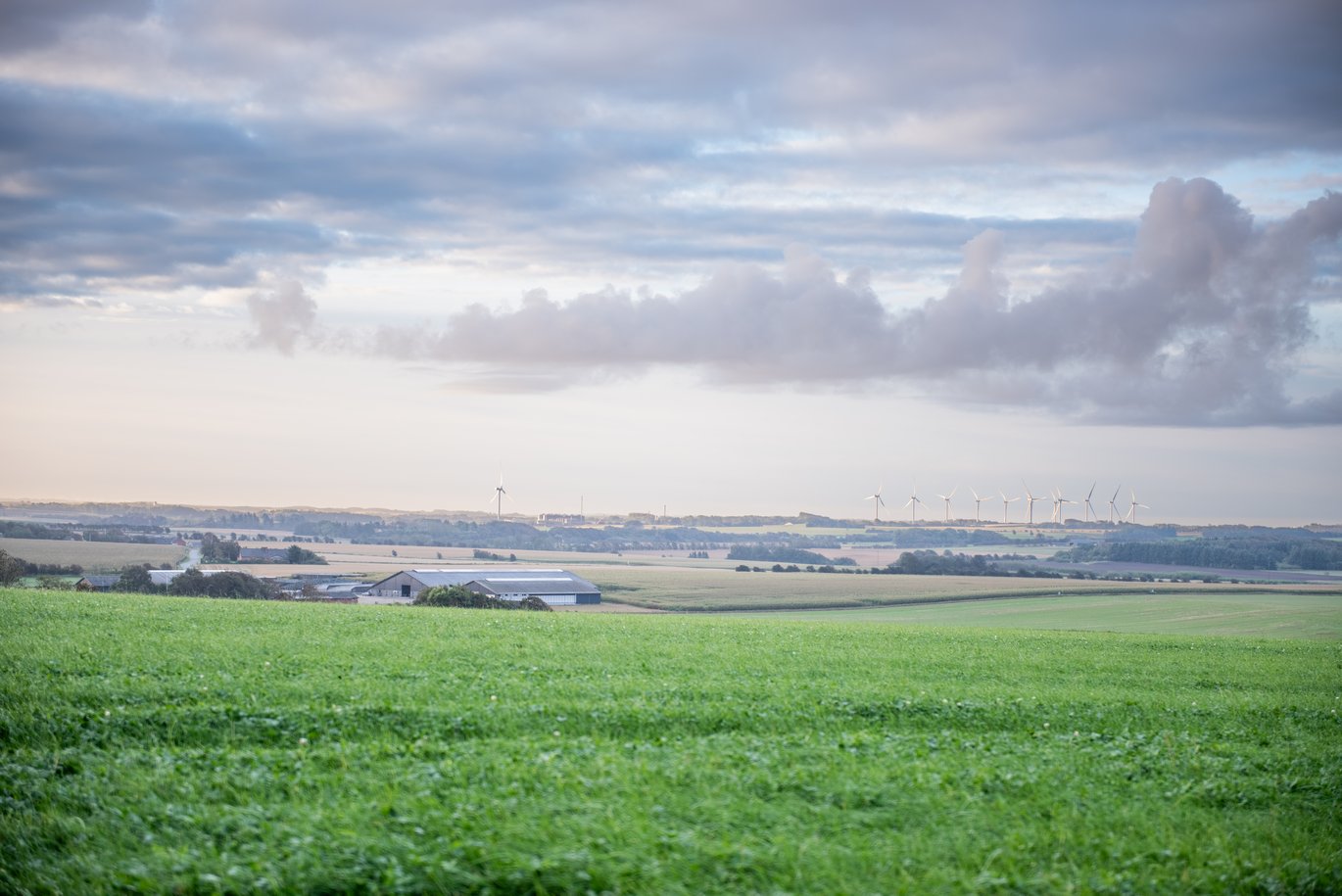Halfway through the GUDP project Grass4Water: Grass as a measure to protect the aquatic environment
A research project supported by the Green Development and Demonstration Program (GUDP) is now halfway through its project period. The project maps the climate and environmental impact of converting maize, cereals, and rapeseed to an environmentally optimised grass production and shows promising preliminary results.

Senior researcher Christen Duus Børgesen from the Department of Agroecology at Aarhus University states that the preliminary results show grass as an effective measure to reduce nitrate leaching. "We can say that maize still causes very high leaching compared to grass, so the preliminary results point to grass as a good measure," he explains, adding that grass before maize causes even higher leaching than maize alone, as the grass is plowed down and decomposed, and since maize only has a short growth period with good nitrogen uptake, some of the nitrogen from the decomposed grass is leached into the aquatic environment.
The collaboration with local farmers, the local waterworks, the municipality, and the agricultural association has been the project's focal point, and the cooperation is going very well. "It bodes well for the rest of the project," says Christen Duus Børgesen.
Background and goals
The project started in 2022 and aims to develop and document the environmental impact and economics of producing grass as a resource for green protein production, biogas, and feed. By growing perennial crops such as grass and clover grass instead of cereals, it is possible to increase field yields, reduce both nitrate leaching and pesticide use, and build up the soil's carbon pool. All of this contributes to reducing the burden on Denmark's aquatic environment.
Grass as a sustainable solution
Grass production appears to be a sustainable solution that can help protect both groundwater and surface water. By converting production from maize, cereals, or rapeseed to grass, farmers can significantly reduce nitrate leaching. This is especially important in areas such as the Limfjord catchment area, where Grass4Water has its test areas. Here, a significant reduction in nitrate leaching is needed to meet the water area plans.
Collaboration and innovation
The project is a collaboration between several research institutions and private companies, including BiomassProtein ApS, Fjordland (agricultural consultancy), GreenLab Skive Biogas, Skive Municipality, Vester Hjerk Waterworks, Skive Climate Fund, the Department of Agroecology at Aarhus University, the Center for Circular Bioeconomy - CBIO at Aarhus University, the Department of Chemistry and Bioscience at Aalborg University, the Department of Geosciences and Natural Resource Management at the University of Copenhagen, and the Department of Food and Resource Economics at the University of Copenhagen.
Visit the Plant Congress and learn more
You can gain deeper insight into the project and its preliminary results at the Plant Congress in Herning/Denmark on January 8th and 9th at the stand where Skive Municipality, among others, will show a video and talk about the project. The video presents the researchers' work and collaboration with local farmers. If you do not attend the Plant Congress, you can watch the video here:
Future perspectives
The researchers hope that their work in Grass4Water will form the basis for a broader application of grass production as a measure to protect the aquatic environment in Denmark. "In the coming year, we will conduct experiments with three-year grass fields versus conversion to maize, so we can locally get the measurements of the effect on nitrate leaching and yield that we need to collectively assess the effects of perennial grass fields," says Christen Duus Børgesen. This allows researchers to further optimise grass production and ensure they achieve their goal of reducing nitrate leaching and protecting both groundwater and marine environments.
More information
For further information and details about the project, click here.
Contact: Senior researcher Christen Duus Børgesen, Department of Agroecology, Aarhus University. Tel.: +45 21694138 or email christen.borgesen@agro.au.dk